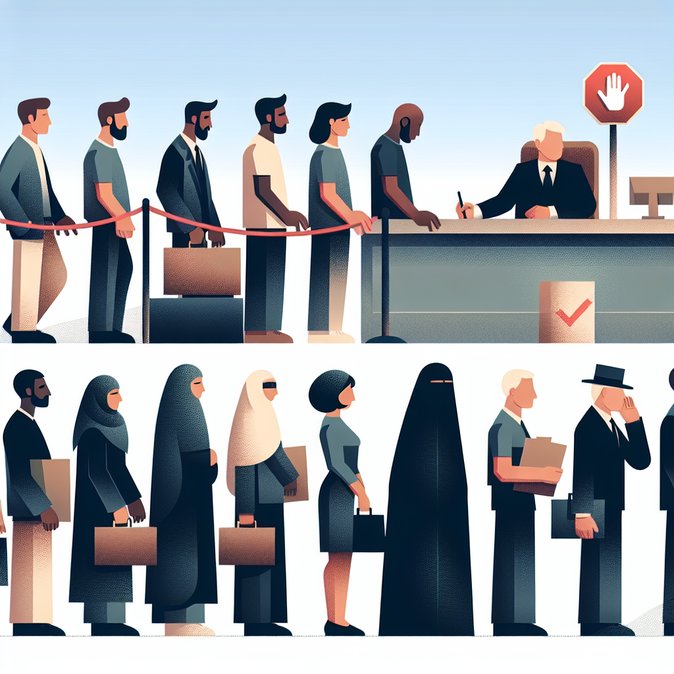
In a major escalation of its hard-line immigration agenda, the Trump administration has directed U.S. Citizenship and Immigration Services (USCIS) to reopen and re-interview every refugee admitted during the Biden presidency—from 20 January 2021 through 20 February 2025. An internal memo signed by USCIS Director Joe Edlow instructs officers to halt all pending green-card (adjustment of status) cases for this population until the review is complete.
USCIS says the extraordinary measure is needed because the prior administration allegedly “prioritized speed and quantity over rigorous vetting.” Refugees found not to meet the legal definition after re-interview could have their status terminated and be placed in removal proceedings. The memo also references President Trump’s October proclamation that slashed the FY 2026 refugee admissions ceiling to a historic low of 7,500 and signaled a preference for white South African applicants.
![Trump Administration Orders Sweeping Re-Interview of 233,000 Biden-Era Refugees]()
Practically, the decision freezes thousands of family-reunification, employment, and travel plans. Refugees who were on the cusp of permanent residence can no longer work legally once their Employment Authorization Documents expire, potentially disrupting employers that rely on them. Multinational companies that relocated staff under the assumption of a straightforward path to a green card now face uncertainty over talent retention and workforce planning.
Advocacy groups argue the move wastes government resources and inflicts needless trauma on people already vetted more thoroughly than any other immigrant class, while immigration attorneys predict an avalanche of litigation on due-process grounds. Corporations with refugee employees should prepare for work-authorization gaps, explore alternative non-immigrant options such as H-1B portability where feasible, and budget for legal challenges.
Although the administration has not published an implementation timeline, the memo indicates USCIS will issue individual notices “in the coming weeks.” Global mobility managers should track case statuses closely and communicate contingency plans to affected assignees.
USCIS says the extraordinary measure is needed because the prior administration allegedly “prioritized speed and quantity over rigorous vetting.” Refugees found not to meet the legal definition after re-interview could have their status terminated and be placed in removal proceedings. The memo also references President Trump’s October proclamation that slashed the FY 2026 refugee admissions ceiling to a historic low of 7,500 and signaled a preference for white South African applicants.

Practically, the decision freezes thousands of family-reunification, employment, and travel plans. Refugees who were on the cusp of permanent residence can no longer work legally once their Employment Authorization Documents expire, potentially disrupting employers that rely on them. Multinational companies that relocated staff under the assumption of a straightforward path to a green card now face uncertainty over talent retention and workforce planning.
Advocacy groups argue the move wastes government resources and inflicts needless trauma on people already vetted more thoroughly than any other immigrant class, while immigration attorneys predict an avalanche of litigation on due-process grounds. Corporations with refugee employees should prepare for work-authorization gaps, explore alternative non-immigrant options such as H-1B portability where feasible, and budget for legal challenges.
Although the administration has not published an implementation timeline, the memo indicates USCIS will issue individual notices “in the coming weeks.” Global mobility managers should track case statuses closely and communicate contingency plans to affected assignees.


